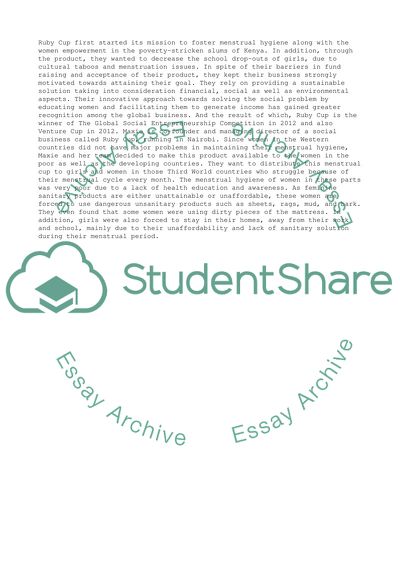Cite this document
(“Social Entrepreneurship - Ruby Cup Research Paper”, n.d.)
Social Entrepreneurship - Ruby Cup Research Paper. Retrieved from https://studentshare.org/business/1618016-social-entrepreneurship-ruby-cup
Social Entrepreneurship - Ruby Cup Research Paper. Retrieved from https://studentshare.org/business/1618016-social-entrepreneurship-ruby-cup
(Social Entrepreneurship - Ruby Cup Research Paper)
Social Entrepreneurship - Ruby Cup Research Paper. https://studentshare.org/business/1618016-social-entrepreneurship-ruby-cup.
Social Entrepreneurship - Ruby Cup Research Paper. https://studentshare.org/business/1618016-social-entrepreneurship-ruby-cup.
“Social Entrepreneurship - Ruby Cup Research Paper”, n.d. https://studentshare.org/business/1618016-social-entrepreneurship-ruby-cup.


